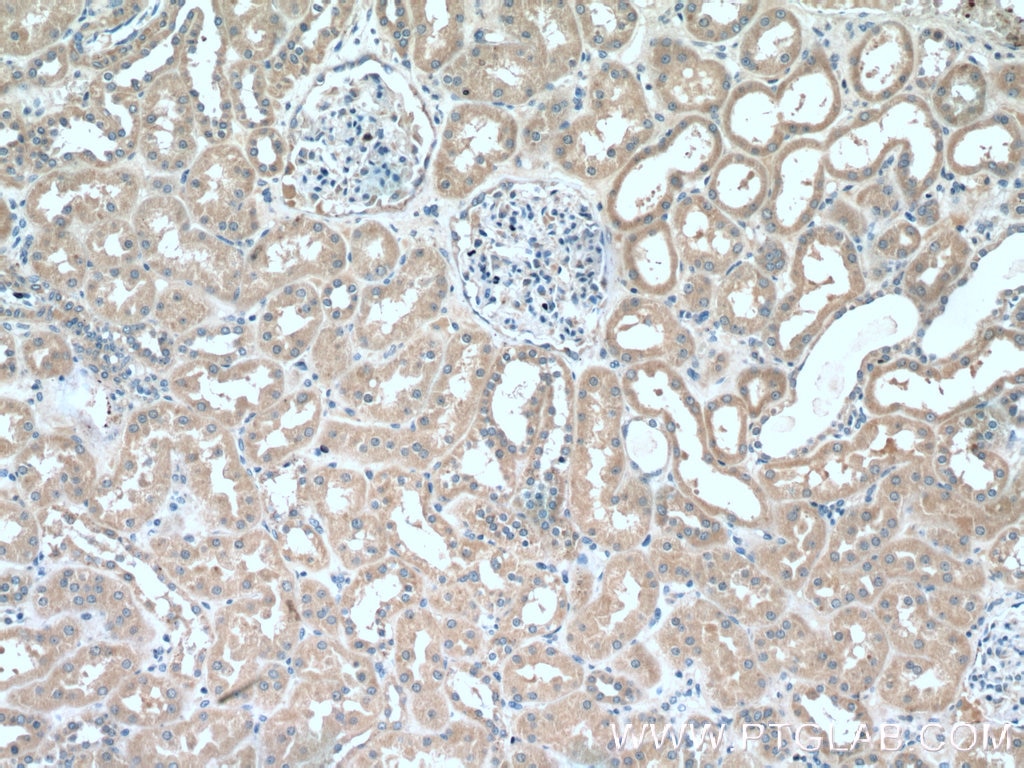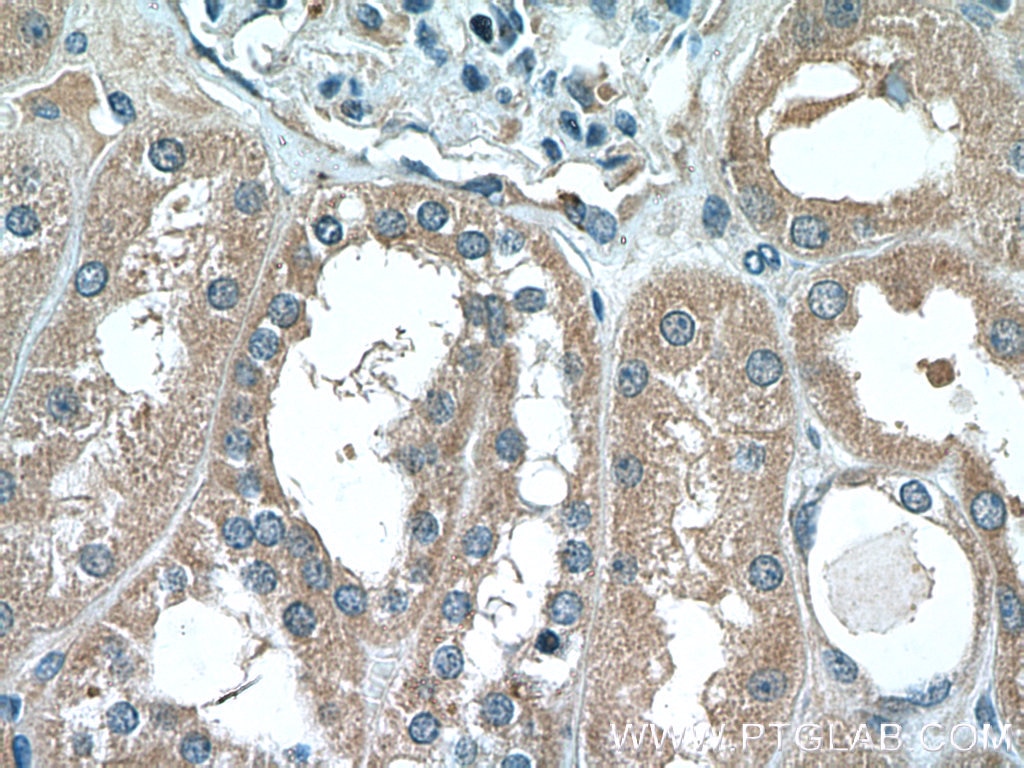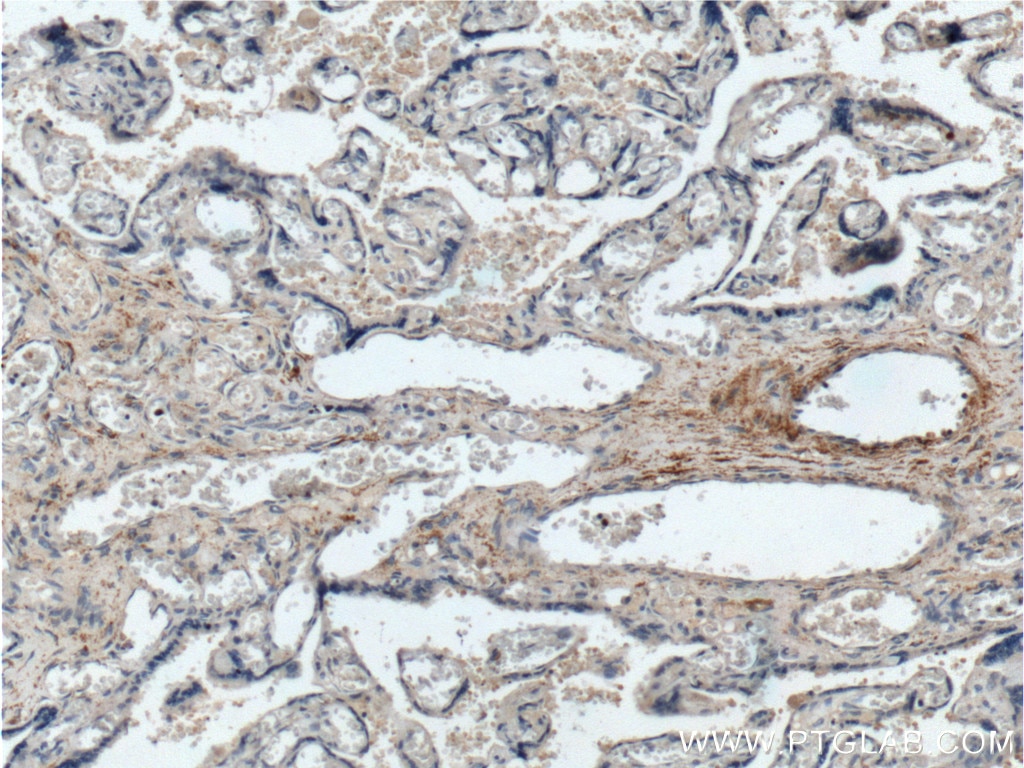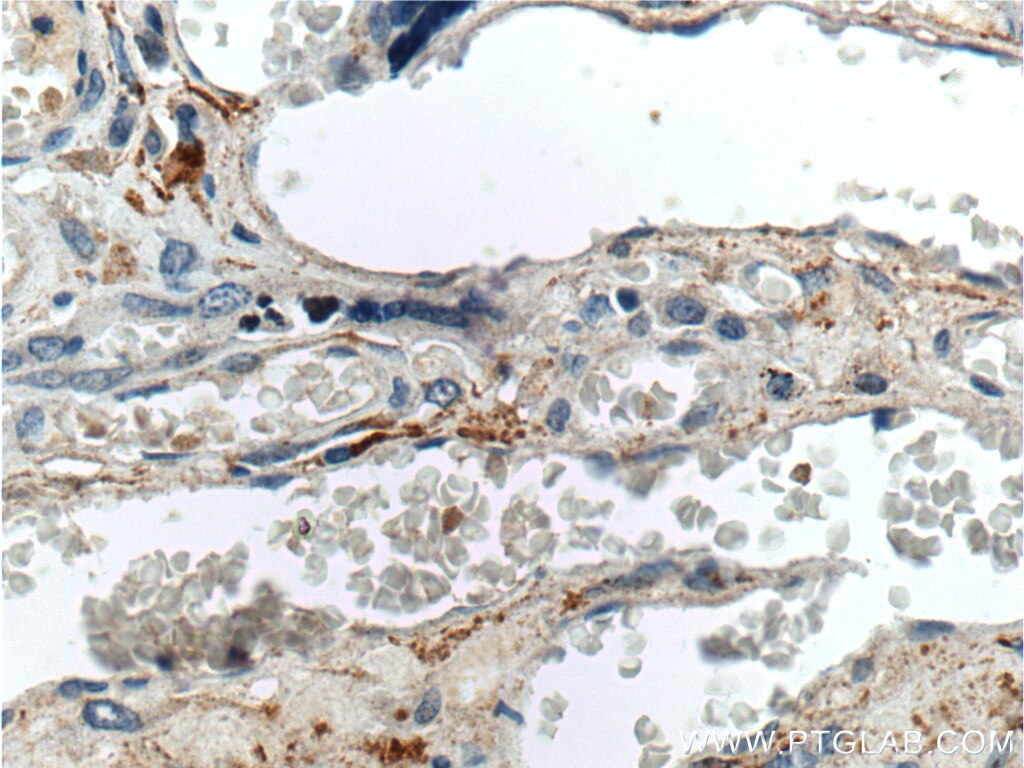- Featured Product
- KD/KO Validated
ABP1 Polyclonal antibody
ABP1 Polyclonal Antibody for IHC,ELISA
Host / Isotype
Rabbit / IgG
Reactivity
human
Applications
WB, IHC, IF
Conjugate
Unconjugated
Cat no : 16338-1-AP
Synonyms
Validation Data Gallery
Tested Applications
| Positive IHC detected in | human kidney tissue, human placenta tissue Note: suggested antigen retrieval with TE buffer pH 9.0; (*) Alternatively, antigen retrieval may be performed with citrate buffer pH 6.0 |
Recommended dilution
| Application | Dilution |
|---|---|
| Immunohistochemistry (IHC) | IHC : 1:50-1:500 |
| It is recommended that this reagent should be titrated in each testing system to obtain optimal results. | |
| Sample-dependent, Check data in validation data gallery. | |
Published Applications
| KD/KO | See 2 publications below |
| WB | See 2 publications below |
| IF | See 1 publications below |
Product Information
The immunogen of 16338-1-AP is ABP1 Fusion Protein expressed in E. coli.
| Tested Reactivity | human |
| Cited Reactivity | human |
| Host / Isotype | Rabbit / IgG |
| Class | Polyclonal |
| Type | Antibody |
| Immunogen | ABP1 fusion protein Ag9492 |
| Full Name | amiloride binding protein 1 (amine oxidase (copper-containing)) |
| Calculated Molecular Weight | 751 aa, 85 kDa |
| Observed Molecular Weight | 85 kDa |
| GenBank Accession Number | BC014093 |
| Gene Symbol | ABP1 |
| Gene ID (NCBI) | 26 |
| RRID | AB_2878245 |
| Conjugate | Unconjugated |
| Form | Liquid |
| Purification Method | Antigen affinity purification |
| Storage Buffer | PBS with 0.02% sodium azide and 50% glycerol pH 7.3. |
| Storage Conditions | Store at -20°C. Stable for one year after shipment. Aliquoting is unnecessary for -20oC storage. 20ul sizes contain 0.1% BSA. |
Protocols
| Product Specific Protocols | |
|---|---|
| IHC protocol for ABP1 antibody 16338-1-AP | Download protocol |
| Standard Protocols | |
|---|---|
| Click here to view our Standard Protocols |
Publications
| Species | Application | Title |
|---|---|---|
Front Pharmacol Photodynamic Therapy of Novel Photosensitizer Ameliorates TNBS-Induced Ulcerative Colitis via Inhibition of AOC1.
| ||
Cancer Manag Res AOC1 Contributes to Tumor Progression by Promoting the AKT and EMT Pathways in Gastric Cancer.
|





